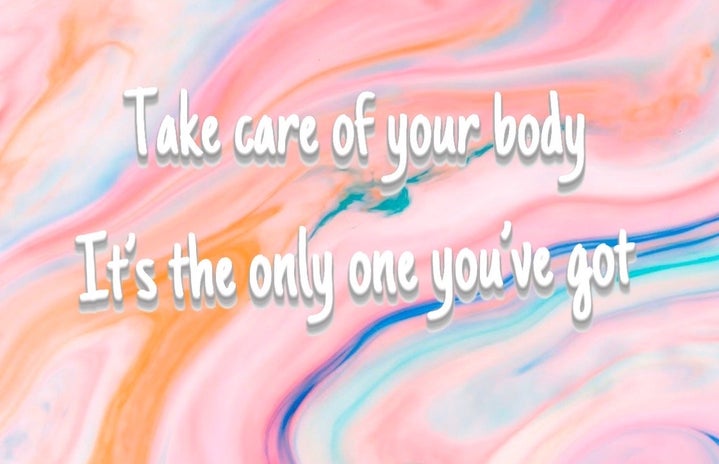Self-compassion is not an expense; it’s a luxury.
Mental health has always been a crucial topic of discussion, & since the beginning of the COVID-19 pandemic, the importance of maintaining a healthy mindset has only become more relevant.
Oftentimes, I believe we may look at self-compassion as a task or a burden on our shoulders, when we should instead be looking at self-compassion as a foundation for maintaining our mental health & wellbeing.
Since the beginning of this pandemic, I’ve started to learn the powers that self-love, care & compassion hold. The pandemic has also helped me realize that we don’t need anyone to make us happy & our happiness shouldn’t depend on someone else’s presence in our lives.
But what is self-compassion, really?
Before we get into things, it’s important to recognize that self-love & self-compassion, although they may seem similar at first, have VASTLY different definitions.
Let’s think of self-compassion as a construct that has three concepts: self-kindness (treating ourselves with forgiveness); acknowledging that everybody is imperfect; & mindfulness.
Basically, practicing self-compassion is the ability to understand & be kind to ourselves when we realize our shortcomings or failures, while self-love is a more stable construct of self-compassion; allowing ourselves to have a high regard for our happiness & personal needs.
Unfortunately, mental illnesses such as depression can create a pattern of repetitive, negative, & regretful self-blaming emotions that may cause us to view ourselves as failures.
What we often fail to recognize is that humans are born to be imperfect & where there is imperfection, tolerance (the ability or willingness to cope with our behaviours and opinions of ourselves) is needed.
With that out of the way, let’s look into some of the ways that self-compassion can help us maintain our mental health.
How can I start practicing self-compassion?
1. Comfort Your Body
Physically taking care of your body works wonders to maintain your mental health – and there are so many ways that we can practice self-compassion through physical care, such as going out for a walk, lying down to rest, eating your favourite fruits, or partaking in any other of your favourite activities.
2. Talk Things Out
Is that nasty breakup with your ex stuck on your mind? What about that argument you got into with your best friend?
Whatever the case may be, if there’s something negatively impacting your thoughts or emotions, it’s surely going to negatively impact your mental health. Normalize discussing your feelings with your friends & family; it’ll help give you that dose of self-compassion that you’re looking for. But, you should also try to remember that it’s equally as important to ask & ensure that the person you are consulting also has the mental capacity to listen to your thoughts or emotions at the time.
Luckily, there are some resources you can use if you’re ever having a difficult time & just need someone to talk to that maybe isn’t close to you. Some good organization such as NAMI Helpline or NIMH are some confidential assets if you ever need someone to chat with. Therapy or counselling (talking directly with trained professionals) can also be helpful in maintaining our well-being.
3. Encourage Yourself!
Imagine this: your best friend just told you that they found out their partner cheated on them. You remind them that their feelings are valid, that they are heard, & you remind them that it’s okay & understandable for them to feel upset. You gently remind them that they may need time to feel & process those heavy emotions, which is completely valid!
But, if this exact same situation happened to you, what would you tell yourself? Would you resort to self-deprecating thoughts?
Whenever you come across a painful situation, try your best to direct compassionate words of encouragement towards yourself, the same way that you would support your friends or family.
4. Practice Mindfulness
Mindfulness is the ability to be fully aware and present of where we are and what we’re doing, to remain unaffected despite any overwhelming activities occurring around us.
In my opinion, mindfulness is the most important aspect of self-compassion. The next time you look in a mirror and struggle to accept your beautiful self just the way you are, accept the good and the bad emotions with an empathetic heart: Don’t deny your negative thoughts. Let them pass through your mind without suppression.
Normalize being kind to yourself, because the one unique person you’re going to be stuck with for a very long time is yourself. Be sure to prioritize your mental health and seek professional help if necessary. If you are ever feeling overwhelmed, remember to acknowledge your emotions: you are heard, loved and so important in this imperfect world.


